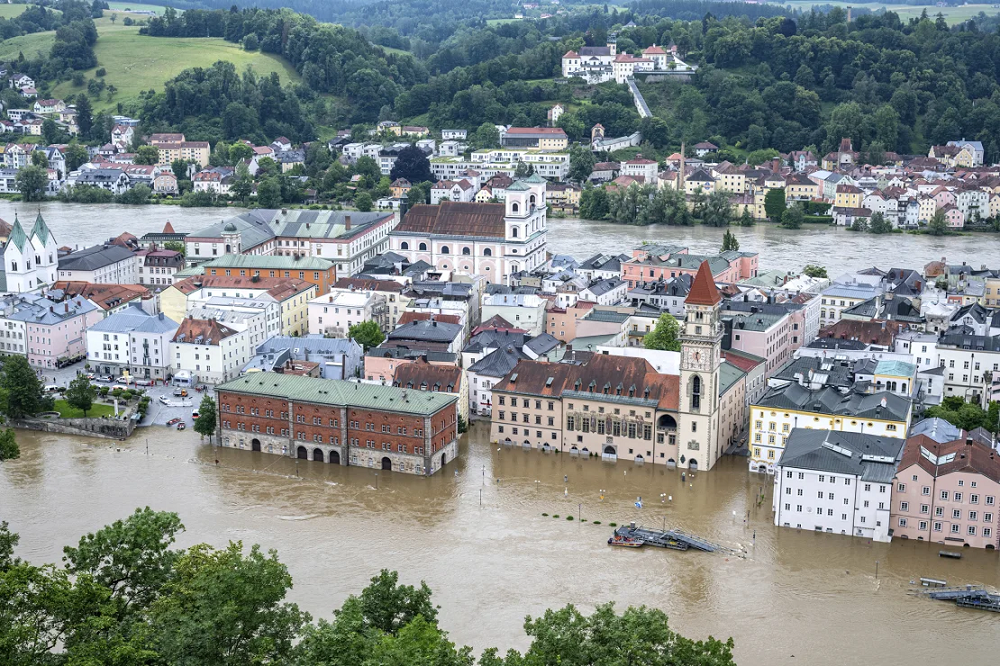
Severe flooding in southern Germany has resulted in the deaths of five people and widespread devastation. Heavy rainfall caused rivers in Bavaria and Baden-Württemberg to burst their banks, leading to significant flooding that has now spread along the Danube River into Austria and Hungary.
In Bavaria, a woman died when her car was washed away, and a firefighter is missing. Another two people were found dead in their basement in Baden-Württemberg. The historic city of Passau, where three rivers converge, saw water levels rise to nearly 10 meters (32 feet), the highest in over a decade.
In response to the disaster, the German Armed Forces deployed 800 personnel to assist with rescue efforts. The Bavarian State Premier, Markus Söder, described the situation as “serious and critical,” with more than 52,000 emergency workers, many of them volunteers, engaged in relief operations.
The flooding also severely impacted the Danube River. In Austria, the Danube burst its banks in Linz, flooding nearby areas and halting all river traffic. Concerns are growing in Hungary, where significant rainfall is expected over the next few days, and the rising water levels threaten the Danube floodplain in Slovakia.
German Chancellor Olaf Scholz and other officials have pointed to climate change as a contributing factor to the increased frequency and severity of such extreme weather events. Scholz emphasized that the floods underscore the urgent need to address man-made climate change.
This disaster echoes previous flooding in Western Europe in 2021, which resulted in over 220 deaths, mostly in Germany. Climate scientists found that human-caused climate change significantly increased the likelihood of such record rainfall events.
The situation remains fluid, with ongoing efforts to manage the aftermath of the floods and prevent further damage as water levels continue to rise along the Danube.






Be First to Comment